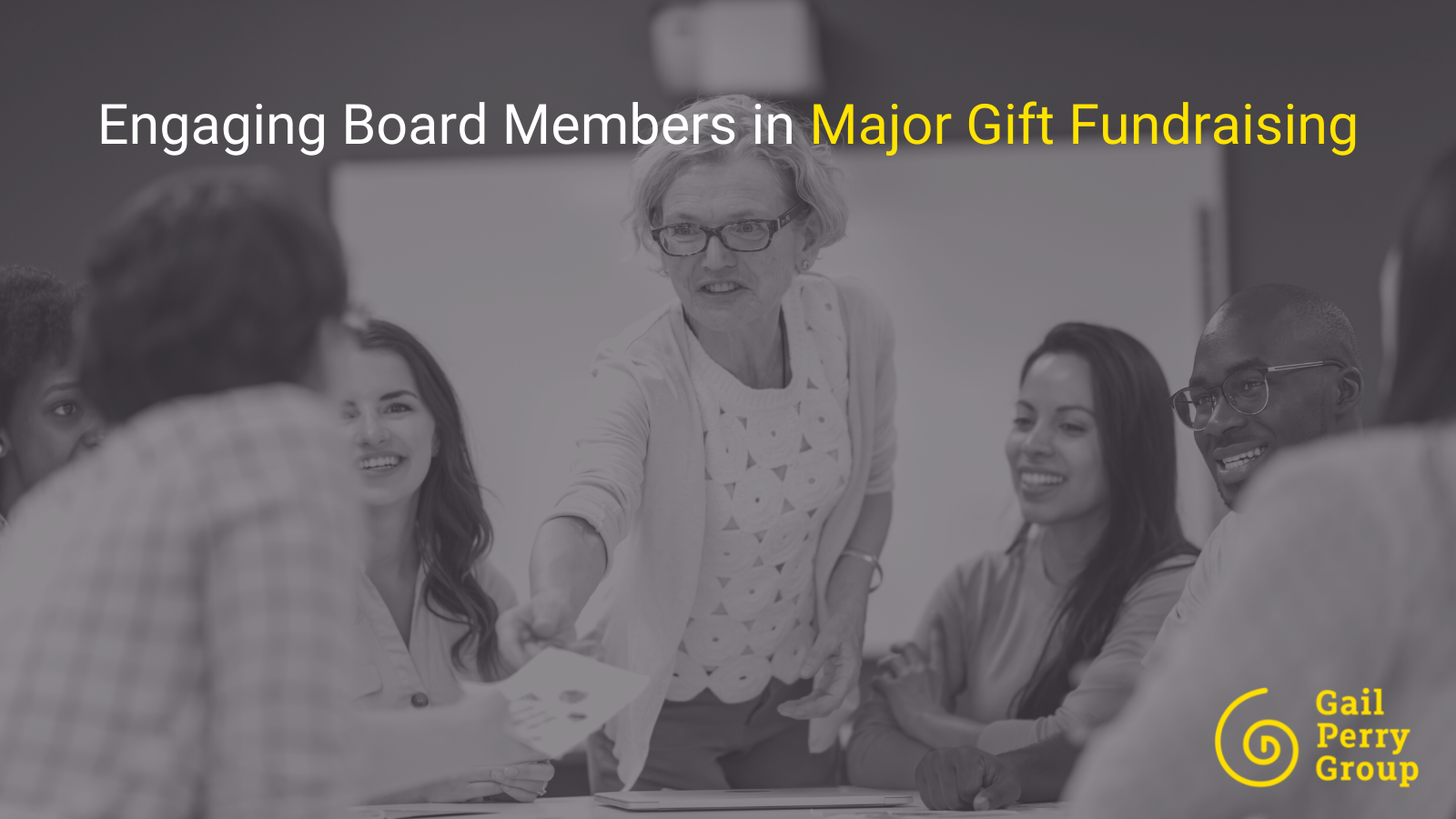Are you wondering how to engage your board members in your major gift development program?
Your trustees could be very helpful, but you may not be sure how to approach them.
It could be a touchy subject.
We have found over the years that getting board members to engage in and support a major gifts program can be challenging.
There are many reasons: Often board members have issues with fundraising. Some are simply not willing to consider how they could help. Others jump in too quickly and take a brash approach that does not work with significant donors.
Receive expert advice. Direct to your inbox. Subscribe
The most frustrating situation is when individual trustees have contacts with high net worth donors – but they are unwilling to make introductions. We’ve all been there!
However, there is a solution: educate your board.
We find that when you can educate board members about how major gift fundraising really works, then almost always – they are happy to help.
Moreover, we also find that most board members are smart people and typically are quite interested to learn how sophisticated fundraising really works. So, if you have board members who are open, and interested in learning, then you have something to work with.
In our annual Major Gift Intensive each year, I present a special workshop to educate and engage board members in the major gift process, titled Major Gift Fundraising for Board Members: Roles, Responsibilities, and Strategies. You can find out more here.
Start where they are.
You have to help them overcome some preconceived notions that are pretty hard-wired into their brains. They don’t realize that fundraising is not about “money.”
For example, many board members tend to think about fundraising as a transaction between the donor and the institution. They think it’s like selling something, unfortunately.
When they believe fundraising is about selling and perhaps being a bit pushy, they want to protect their high-wealth friends. Trustees are often afraid they’ll be asked to “hit up” their colleagues and contacts.
Find out how we can help you achieve your fundraising goals with world-class consulting and custom training.
Often board members are quite surprised to learn that so much of the fundraising process (particularly with major donors) is focused on developing an overall happy relationship – NOT on the ask.
Board members don’t understand the overall major gift process.
We think many trustees are reluctant to help because they don’t understand the process.
They are not familiar with our data, research, and proven methodologies. Many board members don’t understand that major gifts result from a long-term process, and that there are many (enjoyable) steps in nurturing a donor’s interest in your cause.
They don’t how to be all about the donor. For example, many don’t understand the concept of asking a donor for “permission” to discuss a gift.
Even more, they are not aware that the ask is only one small moment in a long term, robust relationship with a donor.
Many board members believe that fundraising activities are not enjoyable.
We often find that trustees often do not understand where major gifts really come from: building relationships with passionate individuals who care deeply about the nonprofit’s work.
There’s a lot of emotion and excitement in fundraising that board members miss.
They don’t see development as a joyful enterprise that connects caring people with your organization. Instead, they see it is this unpleasant activity of “asking for money.”
Wonderful roles for board members to play
Once you educate them, and help them understand the process, then they can be extremely helpful in so many ways.
Here are our favorite ways for board members to support the major gift fundraising process:
- Sorting through major prospect lists to identify high-priority donors. We often pull segments of high-opportunity donors from wealth screenings and have board members review the names.
- Adding background information about a key prospect who may interested in supporting your work. Often local word-of-mouth information about donors can be extraordinarily helpful to the development team. And this is data that only they know because they socialize and travel with the donors in question.
- Helping introduce new high net worth donors to your work. (Once they understand the process, they are much more willing to do this.)
- Making thank you phone calls to important donors. Board members are considered high-ranking VIP’s. When they call donors to say thank you, it becomes a powerful step to deepen the donor’s relationship and commitment to your cause.
Don’t miss our annual Major Gifts Intensive –
If you and your team want to bring your board members into the major gift fundraising process, join us for this advanced, hands-on personal training and coaching program. You, your team and even your board members can gain the skills to close major, principal and transformational gifts – right now, in this environment.
Let us know if you are interested. We can add you to the waiting list.



